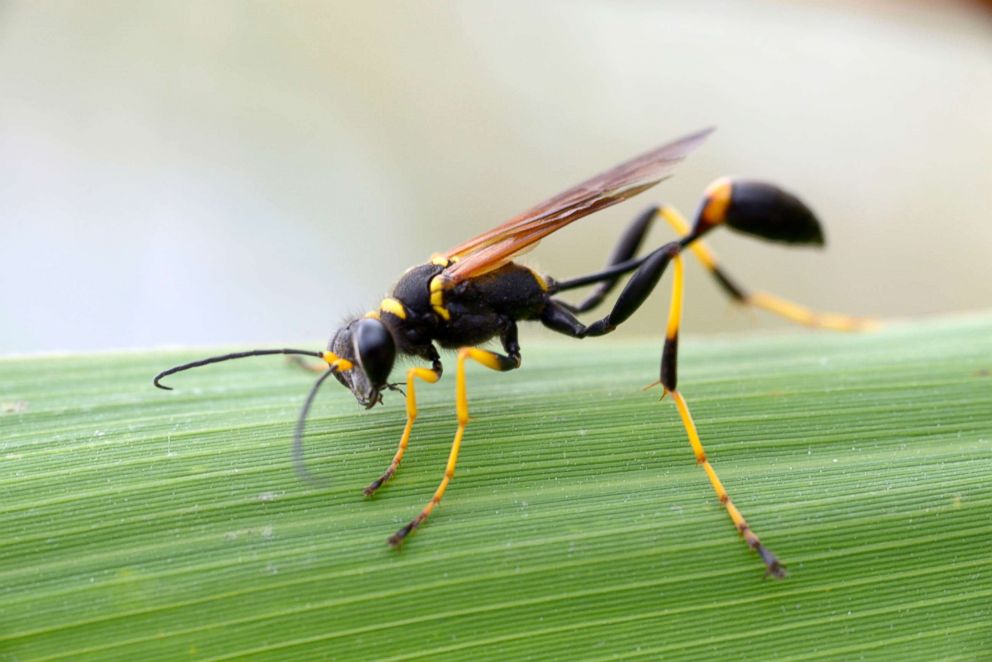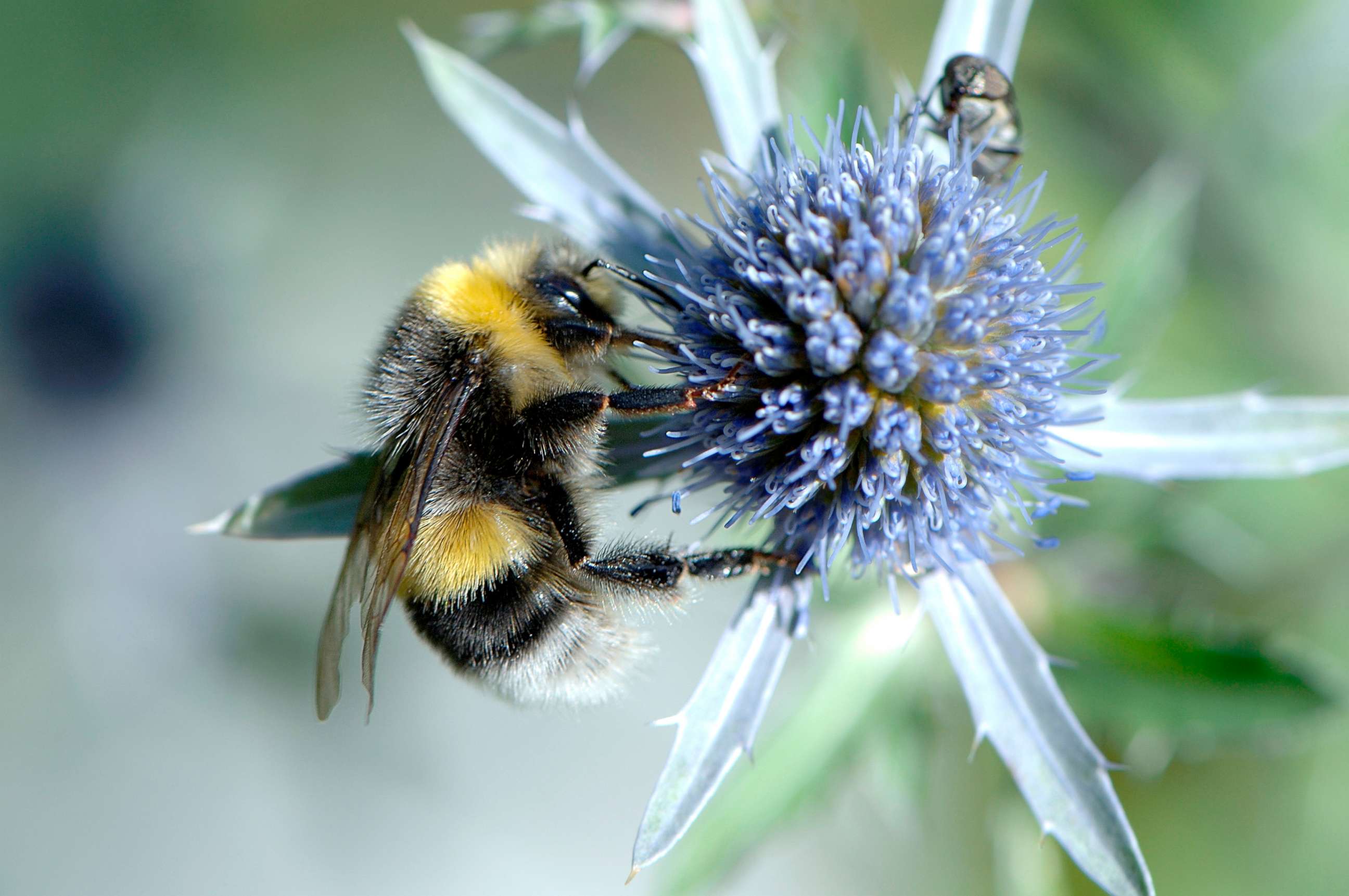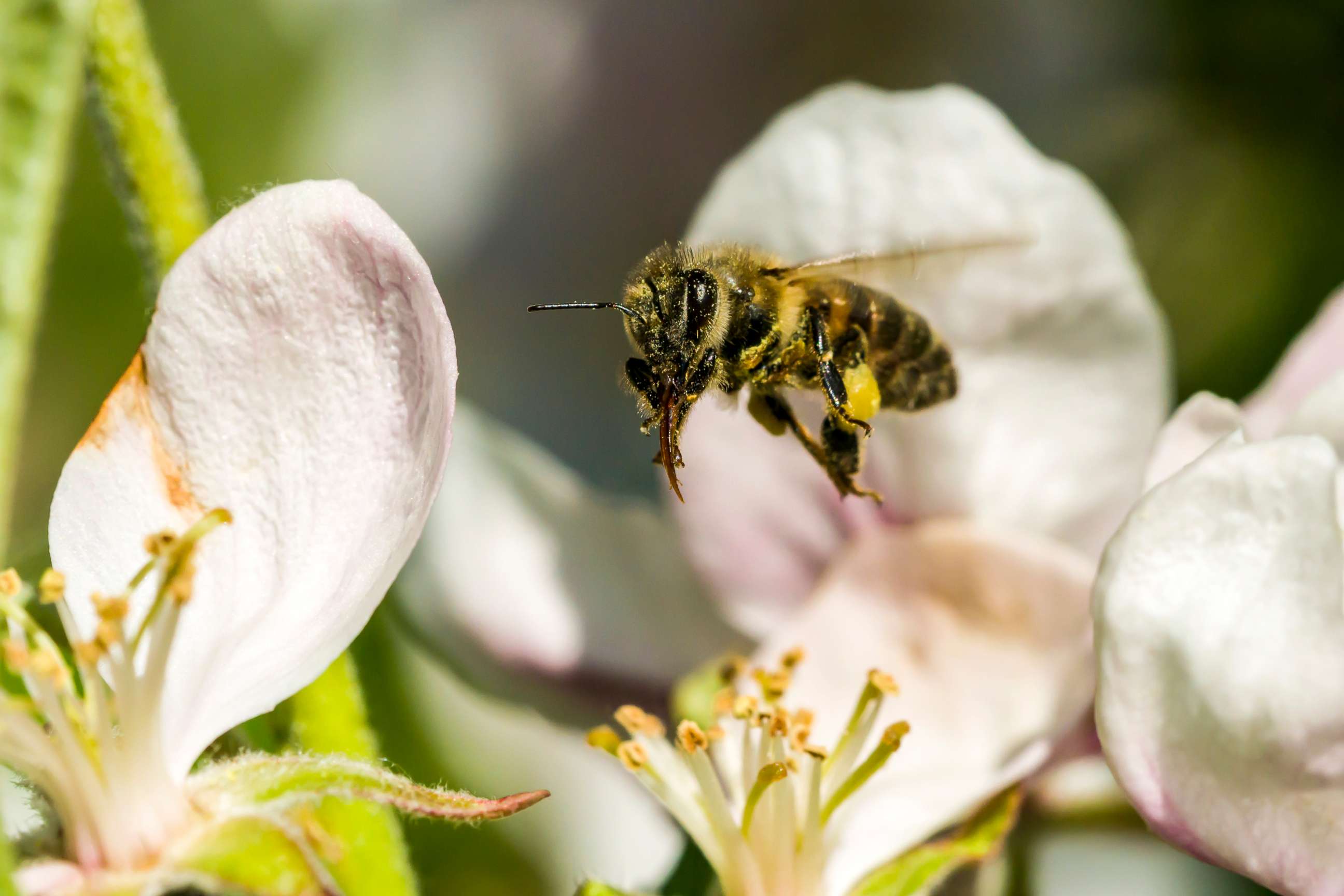The reason humans hate wasps and love bees: Study
“Culturally, we are brought up to hate or fear wasps."
To humans, wasps are not as popular or as well-liked as bees, according to a new study from the University College London that was published in the Ecological Entomology.
“Culturally, we are brought up to hate or fear wasps; this is likely to influence the likelihood of scientists choosing to study wasps, as opposed to bees,” Marie Curie, a research fellow at the University College London, told ABC News.
Wasps are universally disliked more than bees because of the general public's low interest in nature and a lack of knowledge of the benefits wasps bring to the planet’s health and function, according to the study.
Alessandro Cini, the study's author, said understanding what wasps could do for the planet is imperative.
“Less research on wasps means less general appreciation and knowledge about their role; less knowledge means less exposure to the public by the media,” Cini said.
For the study, there were 750 people from 46 countries who took part in a two-month survey via email and social media, according to the report.

Recipients were asked to rate bees and wasps from plus six to minus six. The majority of respondents ranked bees plus three or above, while wasps were rated minus three or below.
“The bothersome nature of social wasps fuels the perception that wasps are more dangerous than bees, although each elicits a similarly painful sting,” according to the study's authors.
Participants were also asked to find words that they associate with bees and wasps.

The most popular words that participants used to describe bees included, honey, flowers, pollen, and pollination, while the most popular words for wasps included sting, annoying, dangerous, and angry, according to the study.
“Our dislike of wasps is largely shaped by a small number of species of social wasps -- the yellowjackets and hornets -- which represent less than 1 percent of stinging wasps but are most likely to come into contact with humans,” according to the authors.
“There are 67 species of social wasps, but the vast majority of wasps -- in excess of 75,000 species -- are solitary,” the study's authors stated.
The researchers also looked into previous research efforts on bees and wasps in publications since 1980. Of the 908 papers they sampled, only 2.4 percent (22 papers) wasp publications were found, while 97.6 percent (886 papers) were bee publications.
Even more, they discovered out of 2,543 conference abstracts on bees or wasps from the last twenty years, only 81.3 percent were on bees.

“In conclusion, we need the media to help turn around our perceptions of wasps to be positivity and tolerance,” Cini said.
Wasps are nature’s pest-controllers, and they eat the insects and other arthropods that plague the garden plants and agricultural crops, according to Cini.
“A world without wasps would mean we need to use a lot more chemicals to control insect pest populations," Cini said. “We need to embrace species like wasps as natural bio-control agents.”
Wasps are very helpful to the environment in other ways, too, Cini noted.
“Wasps also pollinate, not as much as bees," Cini said, "but they are generalist pollinators and so may be good backup pollinators in degraded habitats where bees are not found."




